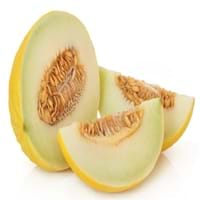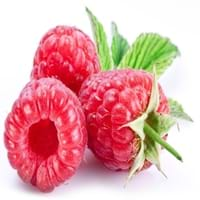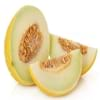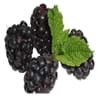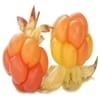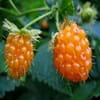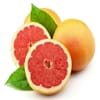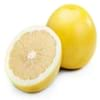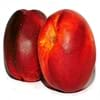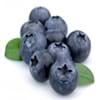Health Benefits
Body hydration, Cancer prevention, Gout treatment, Heart care, Treatment of skin Diseases
Cancer prevention, Heart care, Prevents macular degeneration, Reduces blood circulation problems
General Benefits
Body hydration, Controls blood pressure, Digestive aid, Eye care, Helps in weight loss, Improves eye vision, Maintains healthy cholesterol level, Strengthens bones
Anti-inflammatory properties, Controls blood sugar levels, Digestive aid, Eye care, Helps in weight loss
Skin Benefits
Anti-aging benefits, Brightens and lightens complexion, Hydrates skin, Reduces wrinkles, Treatment of dark spots
Anti-aging benefits, Brightens and lightens complexion
Hair Benefits
Prevents hair loss, Promotes longer and healthier hair, Protects hair
Acts as moisturizer, Regulates hair growth, Shiny hair
Allergy Symptoms
Abdominal cramps, Breathing difficulty, Coughing, Diarrhea, Hives, Hoarseness, Itching in eyes, Itching of mouth, Itching sensation in throat, Nasal congestion, Nausea, Skin rash, Wheezing
Breathing difficulty, Eczema, Hives, Itching, Nasal congestion, Runny nose, Sneezing, Watery eyes, Wheezing
Side Effects
Allergic reaction
Allergic reaction
Best Time to Eat
As a snack in the late afternoon, Don't consume at night and before bed, Eat the fresh ones, avoid mixing with any other foods, don't eat after meal., Morning time (before lunch)
Best if taken as a breakfast (or empty stomach), As a snack in the late afternoon, Don't eat after meal, Morning time (before lunch)
Vitamin B5 (Pantothenic Acid)
Vitamin C (Ascorbic Acid)
Vitamin K (Phyllochinone)
Calories in Fresh Fruit with Peel
Not Available
Calories in Fresh Fruit without Peel
Not Available
Calories in Canned Form
Not Available
Season
All seasons
Summer
Varieties
Green Flesh, Yellow Rind and Orange Flesh
Amity, August Red, Boyne, Canby, Caroline, Comet, Dinkum, Dorman Red, Latham, Meeker, Black Hawk, Hayda, Lauren, Meeker and Latham
Color
Green, Yellow
Black, Purple, Red, Yellow
Inside Color
Light Green
Pink
Origin
France
Europe, North Asia
Grows on
Not Available
Trees
Soil Type
Sandy loam, Well-drained
Sandy loam
Climatic Conditions
Warm
Cold
Facts about
- The average weight of honeydew melon is 6 pounds.
- 90% of a honeydew is water.
- In middle east countries, dried and roasted honeydew seeds are consumed as snacks.
- Honeydew melons can be 15-22 mm long.
- There are more than 200 varieties of raspberries.
- In USA, 90% of the raspberries are grown in Washington, California and Oregon.
- They do not ripe after they are picked.
- A raspberry contain 100 to 120 seeds.
Top Producer
China
Russia
Other Countries
Brazil, Egypt, India, Iran, Mexico, Morocco, Spain, Turkey, United States of America
Azerbaijan, Canada, Mexico, Poland, Serbia, Spain, Ukraine, United Kingdom, United States of America
Top Importer
Not Available
United States of America
Top Exporter
Not Available
Poland
Botanical Name
Cucumis melo
Rubus Idaeus
Synonym
Not Available
Not Available
Subkingdom
Tracheobionta
Tracheobionta
Division
Magnoliophyta
Magnoliophyta
Class
Magnoliopsida
Magnoliopsida
Subclass
Dillenhidae
Rosidae
Order
Cucurbitales
Rosales
Family
Cucurbitaceae
Rosaceae
Species
C. melo
R. idaeus
Compare Honeydew and Raspberry
It is important compare Honeydew and Raspberry as both the fruits have a different nutritional value. Their comparison can be done on the basis of their vitamin and mineral content, calories, benefits as well as characteristics, making it easier for us to choose the best fruit for our diet. Their general health benefits are as follows:
Honeydew Benefits: body hydration, controls blood pressure, digestive aid, eye care, helps in weight loss, improves eye vision, maintains healthy cholesterol level and strengthens bones.
Raspberry Benefits: anti-inflammatory properties, controls blood sugar levels, digestive aid, eye care and helps in weight loss.
Fruits are also used as a remedy for various hair problems. The hair benefits of Honeydew are: prevents hair loss, promotes longer and healthier hair and protects hair and hair benefits of Raspberry are: acts as moisturizer, regulates hair growth and shiny hair. Some fruits are known to cause allergic reactions. The allergy symptoms of first fruit are: abdominal cramps, breathing difficulty, coughing, diarrhea, hives, hoarseness, itching in eyes, itching of mouth, itching sensation in throat, nasal congestion, nausea, skin rash and wheezing and the symptoms of second fruit are: breathing difficulty, eczema, hives, itching, nasal congestion, runny nose, sneezing, watery eyes and wheezing. Get sorted Honeydew vs Raspberry comparison with the help of fruit comparison tool by fruitvs.com.
